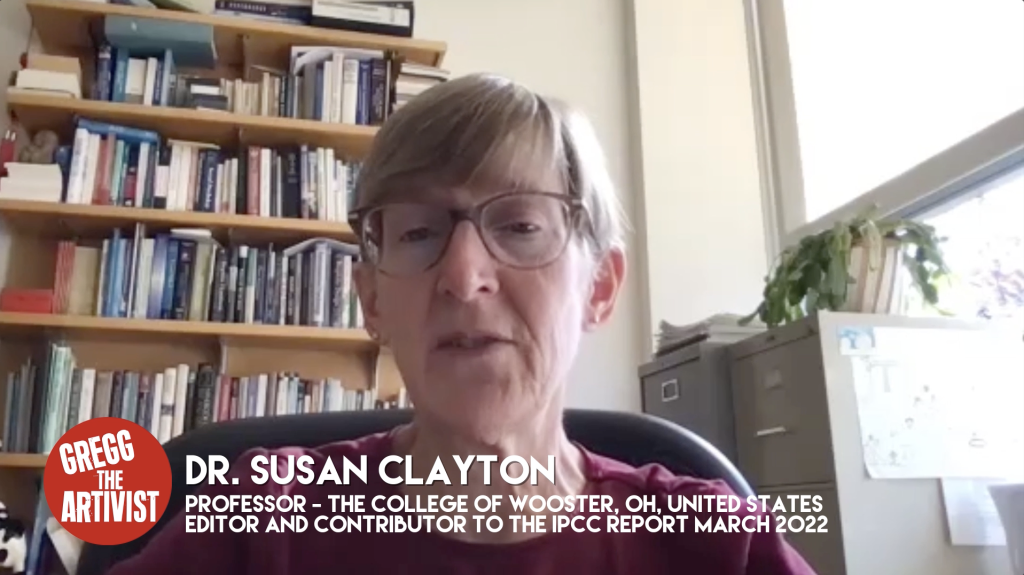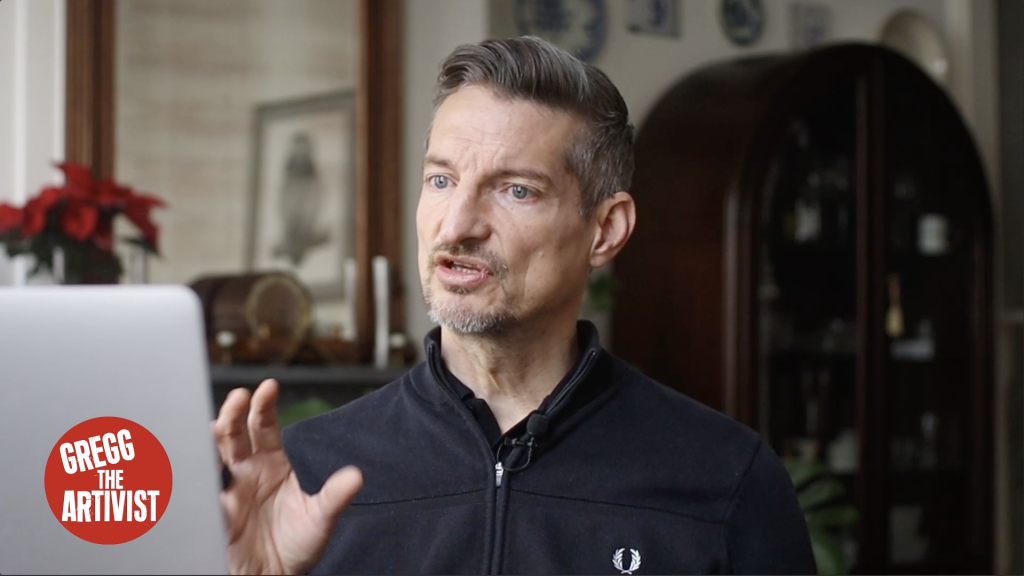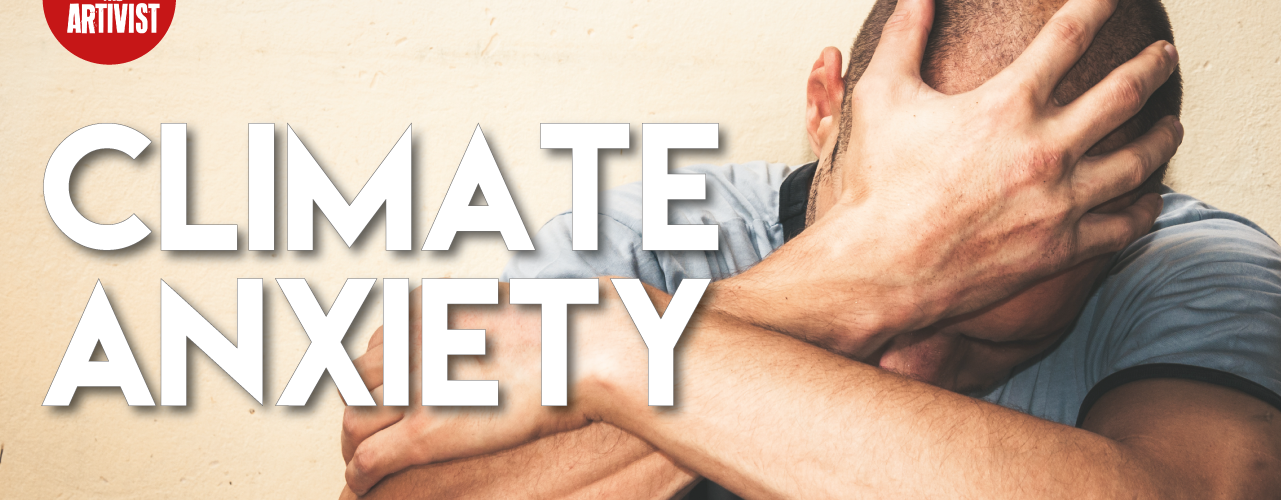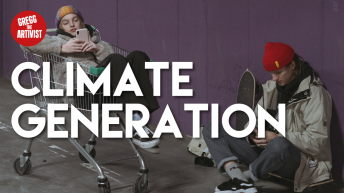When we think about Climate Change, our first thoughts are often that of either the causes like fossil fuels. Or the the extreme weather events we are witnessing such as the droughts, the floods, the fires and the heatwaves. Yet, although many of us will say that the climate emergency makes us feel a level of anxiety, we don’t automatically associated the mental health risks being presented by our changing climate.
For some, in the face of the world’s inaction, and an unknown future, this climate anxiety is leading to strong emotion responses such as angry, guilt, distress and fear. And this level of emotional response can have a devastating impact on our mental well being.
In a time when our changing climate is calling into question some of the fundamental certainties we have of the world, our future, and undermines our very sense of security, in this episode we explore…
The Age of Climate Anxiety
Following my own personal experiences with burnout several years ago, mental health has become a really important subject matter to me. And through my YouTube channel I’ve been understanding that many of my viewers report they suffer anxiety when discussing the climate emergency.
Wanting to understand the potential impacts that the climate emergency has on our mental health, I recently had the pleasure to speak with a world leading authority of the psychological impacts of climate change, Dr. Susan Clayton. Whitmore-Williams Professor of Psychology, The College of Wooster, Ohio in the United States, Dr Clayton is the Co-Author of the invaluable book ‘Psychology and Climate Change – Human Perceptions, Impacts, and responses. And contributor to the sixth IPCC assessment report; Climate Change 2022: Impacts, Adaptation and Vulnerability. Here are some of the highlights of this discussion. You can watch the full discussion on my YouTube video: The Age Of Climate Anxiety

But how does psychology help us to understand the climate emergency?
Dr Clayton: “Psychology actually has a lot to contribute to this discussion, and I would say several distinct things. One is psychology can help us to understand people’s perceptions of climate change. Clearly, some people are very worried, others are not worried at all. You know, what are the factors that contribute to those different cognitive responses? Psychology is definitely important to understanding the impacts of climate change, and this is something I think people are not sufficiently aware of, but I think awareness is growing that there are these impacts on our psychological well-being.
And then psychologists, of course, for as long as there have been psychologists have focused on helping people cope with difficult situations, both through developing personal resilience and emotional skills, but also through, when appropriate, changing their behavior. So I think psychologists can help in both of those domains when it comes to climate change.”
How to Recognise Climate Anxiety?
Gregg: “One of the things that I’ve experienced as I’ve been building my community here on the channel, is that during the conversations I am having with many if the viewers, a lot of the responses come from this place of real despair when talking about the Climate Emergency. And there’s a lot of very string emotional responses such as angry, frustration, shame, blame, guilt as well as a lot of shifting of this blame.
Can tell us how we recognise Climate Anxiety, and what is it that we know and we don’t know about it, and how does it differ from something that’s more popularly coined or known as eco anxiety?”
Dr Clayton: “Well, I’ll start by saying that there’s a lot we don’t know about climate anxiety, but what we do know is that a lot of people are experiencing these powerful emotions, as you said, anxiety, anger, guilt, distress and fear associated with climate change. And that this has the potential to affect their mental health. So you asked how to recognize it, I would say”.
“We need to distinguish at least two different manifestations. One is just the anxiety itself and people will, I think many people will freely admit that they are anxious about climate change. But the other is when does this actually constitute a mental health problem? So it is not by itself a sign of a problem to be anxious about climate change. But when that anxiety starts to impair your ability to live your life, to function, to work, to have social interactions, to sleep, that’s when we start to think there’s an underlying mental health issue”.
“And, when it comes to eco anxiety versus climate anxiety, in many cases they’re used interchangeably. I think the term eco anxiety encompasses more broad concerns about environmental change, so people might feel anxiety associated with the degradation of the environment due to pollution, or would the loss of biodiversity. So it it includes those different aspects of environmental change, whereas climate change anxiety or climate anxiety really focuses on that. That response to climate change in particular”.
Is Climate Anxiety a Mental Health Concern?
Gregg: “You’ve touched here on, about at what stages climate anxiety could be considered a mental health issue, and that raises the question. Is there enough awareness about the risks that the climate emergency is presenting to our mental health?”
Dr. Clayton: “I can say that I definitely think there is not enough awareness of the threat that climate change poses to our mental health, and I actually want to just quickly describe, it’s not just about anxiety, they’re very direct impacts on mental health if you experience some of those climate change impacts like major storms or wildfires, droughts can be, you know, very disruptive and distressing.”
“So we, we know that mental health problems are increasing because of those changes and also because of higher temperatures, which are associated with increased psychiatric problems. And those dramatic impacts, I think even people who know a lot about climate change are often surprised to hear about those mental health impacts. Or have them pointed out. And then climate anxiety in particular is important because you can experience climate anxiety even if you haven’t directly been affected by the major storms or the droughts or the the heat waves, so it has the potential to affect a lot more people.”

The Wider Impact of Climate Anxiety
Gregg: “It’s really interesting that you mention that it can affect people who aren’t physically experiencing these extreme weather events as a result of our changing climate. I say this because I’ve found in numerous conversations with followers here on YouTube and other social medias saying things like…. Well I don’t understand why I am feeling these strong emotions about the climate emergency.”
Dr. Clayton: “I think when I started to think about climate anxiety, what I was struck by is the fact that many people describe climate change is an existential threat. And what it does is really call into question some of the most fundamental certainties that we have. You know, that the world is a fairly stable place, that things will continue more or less the way they have in the past. And so for people who are recognizing that that’s not true, there’s a profound cognitive shift that is extremely distressing and can undermine our sense of of security, in a very basic way and just require you to, to rethink things that you were taking for granted. So I think it’s that, that very fundamental aspect of climate change, that’s one of the reasons that people feel anxious. It’s just it, it calls so much into question.”
Watch the full video as we go deeper into conversation about the impacts, challenges and possible solutions of Climate Anxiety here: The Age of Climate Anxiety with Dr. Susan Clayton.
If you liked this video, be sure to check out my video ‘Do Our Youth Really Care About The Climate Crisis?’
Click on link here to see the episode.
Follow me:
✅ Subscribe My Channel: https://www.youtube.com/greggtheartivist
✅Instagram: https://www.instagram.com/greggtheart…
✅Tick Tok: https://www.tiktok.com/@greggtheartivist
Join & Support Me:
Patreon: https://www.patreon.com/greggtheartivist






Add comment